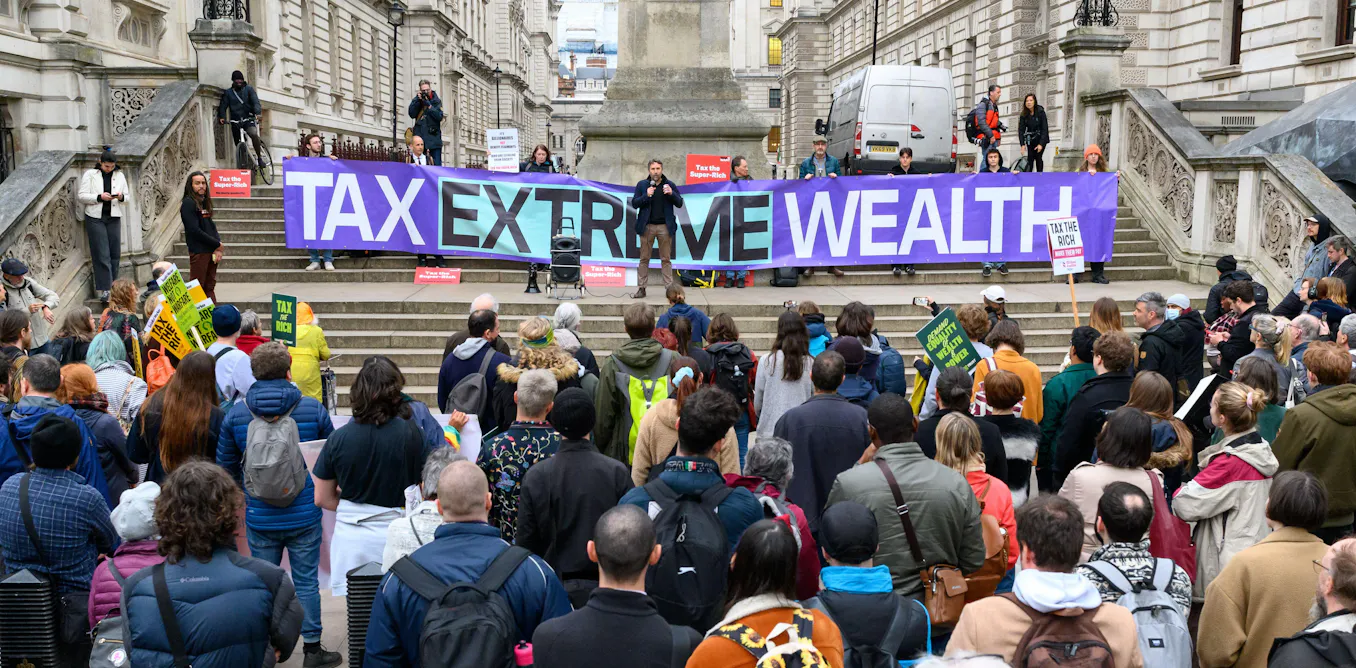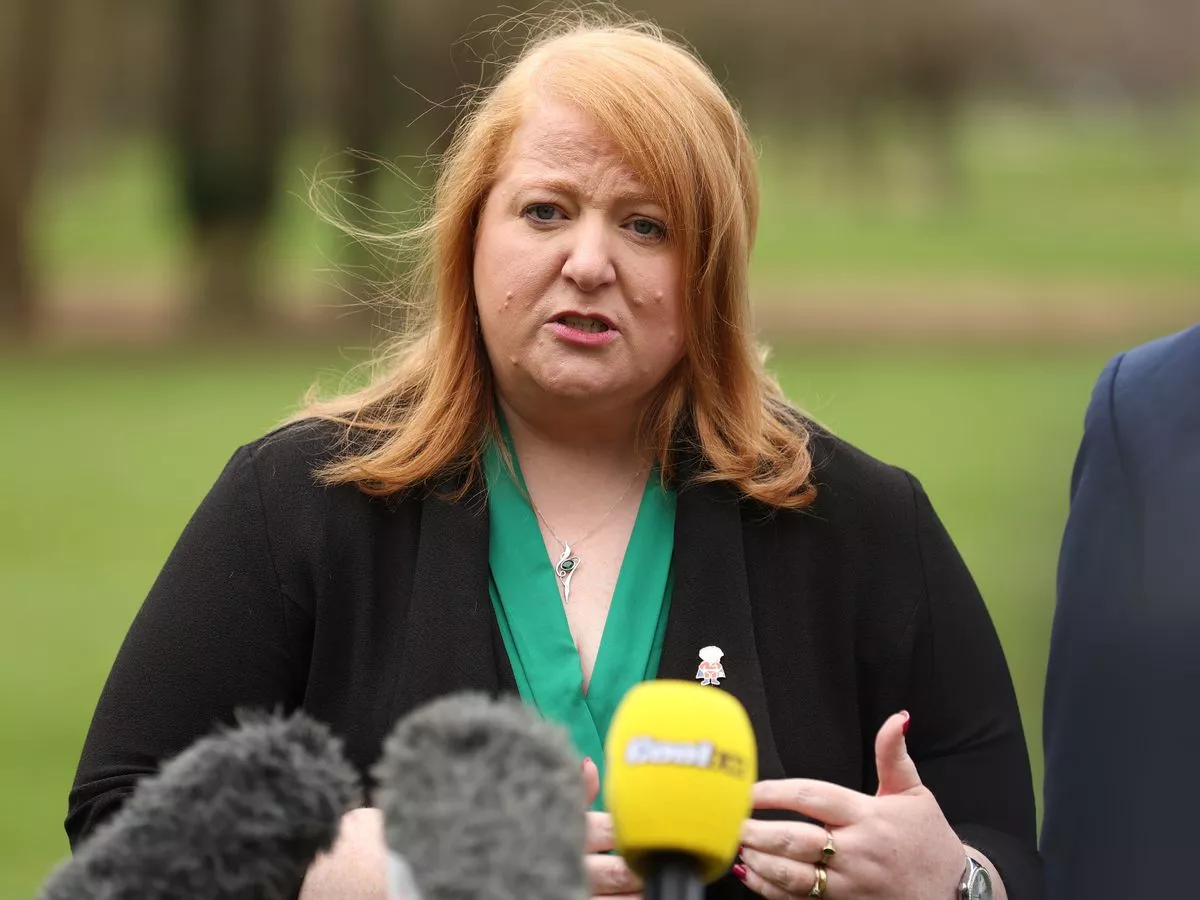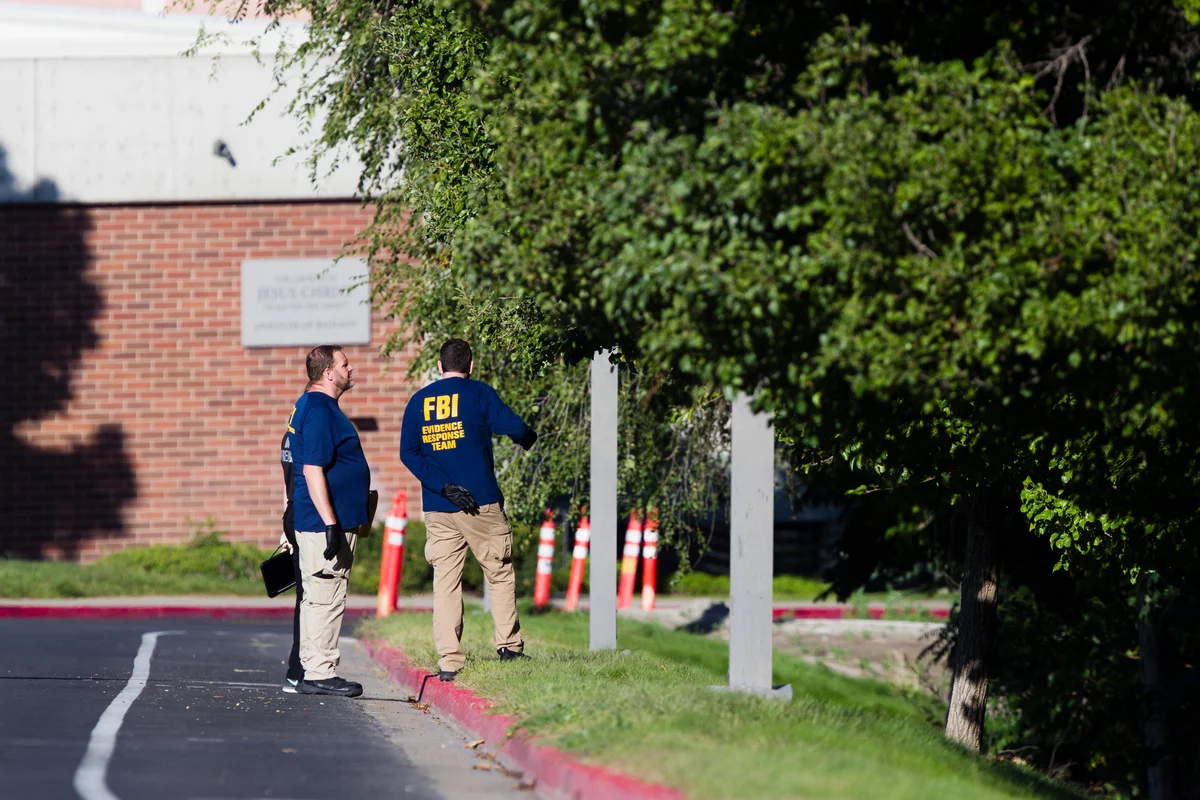Copyright theconversation

When the full, unexpurgated diaries of the Conservative MP Sir Henry “Chips” Channon were published in 2021, these disarmingly frank accounts of his aristocratic life in mid-20th century Britain caused a stir. They revealed the inner thoughts of a renowned social climber and rightwing snob, whose political career never recovered from his record as an appeaser of Nazi Germany. Having married into the Guinness family fortune, Channon revelled in the booty of landed wealth: the thrill at purchasing a country house, Kelvedon Hall in Essex; the glitter of cut glass in the lavish dinner parties he hosted; extravagant bejewelled gifts for his many lovers; the whirl of expensive European holidays and chauffeur-driven cars. One diary entry describes Channon and friends partying with Nazi leaders including Hermann Göring while in Berlin for the 1936 Olympics. But there is an intriguing counterpoint to his naked love of wealth. During the later 1930s under a Conservative-led coalition government, taxes began to rise to pay for Britain’s rearmament in preparation for war. Writing about then-chancellor Sir John Simon’s “staggering” first war budget late in 1939, Channon recalled: There was a gasp when he said that income tax would be 7/6 [37.5p] in the £. The crowded House [of Commons] was dumbfounded … Increased surtax, lower allowances, raised duties on wine, cigarettes and sugar, substantially increased death duties. It’s all so bad that one can only make the best of it, and reorganise one’s life accordingly. This and subsequent tax increases had a massive effect on Channon’s lavish lifestyle. During the second world war, his Kelvedon estate was repurposed as a military hospital – part of the large-scale selling off of landed estates that changed the face of rural Britain (as evoked in Evelyn Waugh’s Brideshead Revisited). Yet Channon’s attitude to these privations was pragmatic: he would just have to pay the extra and get on with his life as best he could. It is now widely recognised that our current times bear uncanny parallels with the 1930s – from the rise of authoritarian regimes to huge pressures on public spending in the context of volatile economic conditions. Yet unlike that pre-war period, today’s proposals to raise taxation on high incomes and wealth are being met with huge pushback – sometimes amounting to hysteria – from parts of society and the media. The Conversation and LSE’s International Inequalities Institute have teamed up for a special online event on Tuesday, November 18 from 5pm-6.30pm. Join experts from the worlds of business, taxation and government policy as they discuss the difficult choices facing Chancellor Rachel Reeves in her budget. Sign up for free here Rather than the pragmatism that Channon and many of his wealthy contemporaries displayed, some public commentary implies that increasing tax on the wealthy is akin to infringing the natural order of things. The new Labour government’s adjustment of inheritance tax in autumn 2024 to bring farm property into line with other assets was met with protests on the streets. The same year, reforms to end tax exemptions for “non-domiciled” UK residents (those who claim their permanent home is outside the UK) – initially announced by Conservative chancellor Jeremy Hunt – provoked a flurry of (mostly unsubstantiated) claims that the international super-rich would be leaving the UK for better pastures abroad. Whatever happened to the stoicism of the rich, prepared to shoulder their responsibilities for social wellbeing in the face of pressing economic and political challenges? Perhaps the key difference between Channon’s time and our own is revealed in two graphs which show dramatic changes in the distribution and degree of wealth held in Britain over the last century. At the time Channon was writing, wealth assets per head were vastly smaller than they are now – having declined since the early 20th century, mostly due to wartime depredation. However, from the 1950s on, they began a remarkable ascent. From the dawn of human history, it took many millennia for the mean amount of wealth per Briton to equate to £50k – reached sometime in the 1970s. Yet a mere 40 years after that, this personal wealth figure had tripled: UK personal wealth over time: This dramatic rise in UK wealth ownership was matched by a change in who owned it. In Channon’s time, the top 1% wealthiest people owned an astonishing 50% of the UK’s total – which makes sense of his stoicism. He knew well enough that only a few upper-class people like him had substantial wealth, while large numbers of Britons lived in straitened conditions and could not realistically pay more tax. When the going got tough, there was little option but for people like him to cough up. Since then, the wealth share held by the top 1% has more than halved, dropping to around 20% of the total. And the UK’s wealthiest 10% now owns just under 60% – down from 90% in Channon’s day: UK wealth inequality over time: On the face of it, these two graphs appear to tell a cheerful and progressive story. The UK, like many rich countries, has become much wealthier, and these benefits are being more widely spread. What’s not to like? In fact, many influential economists – including contributors to the Institute for Fiscal Studies’ influential Deaton Review – have identified the build-up of private wealth as a worrying trend for Britain. Where the vast increase in the nation’s wealth over the past 75 years could have been invested for the good of the nation, it has been largely squirrelled away into private hands, inflating the wealth of the UK’s upper and middle class to the detriment of society as a whole. As a sociologist, I have long researched the impact of class inequalities on British society – and how class, gender, racial and regional divides are mutually reinforcing. I am now increasingly concerned by the way the build-up of private wealth assets intensifies these inequalities – potentially to breaking point. Left unchecked, I believe Britain’s “wealth timebomb” will enlarge the current ruptures in society – already reflected in the rise of angry populist political movements – leaving a calamitous legacy for future generations. As UK chancellor Rachel Reeves’s options for potential increases in wealth and other taxes are debated ahead of a highly anticipated budget on November 26, I’d argue that such discussions should not be framed purely in technical terms – of what is an efficient way of raising funds for the public purse without damaging UK prosperity. Read more: Budget 2025: what should Rachel Reeves do about tax? Join our live event There is a much broader cultural politics of wealth that needs addressing. In particular, it is time to stress-test the seemingly widespread view that wealth should be treated entirely as a private good, and does not come with any social obligations. This idea leads to the deeply dysfunctional view that wealth assets are free to be amassed, spent and passed on by their owners with scant encroachment in the form of taxation. Chips Channon can be criticised for many things – but even he did not agree with that. The collective effort of generations The contemporary reluctance to tax wealth, in Britain and many other rich countries, is actually very unusual. Throughout history, most societies have seen this form of resource redistribution as utterly reasonable. One of William the Conqueror’s first acts after the Norman invasion of 1066 was to commission the Domesday book to systematically record the landed assets of his newly conquered land. In poorer societies, wealth stocks were the most viable assets to tax. Throughout British history, private wealth holders were often sanctioned for flouting common norms of “reciprocity” and fairness for the people who worked for them. In the aristocratic landed estates that made up Britain’s main form of wealth until the early 20th century, owners were still under strong moral pressure to operate them for the wider public good. Similarly, in a strong manufacturing economy like Britain’s, it was uncontentious to regard wealth derived from owning factories and businesses as some kind of social product – the result of profits from the often gruelling lives of many workers. Those fortunate to possess large stocks of wealth were generally expected to take some kind of social responsibility for their workers. A few 19th-century philanthropists were explicit about the public value of private wealth. Most famously, American steel magnate Andrew Carnegie’s Gospel of Wealth inspired a radical liberal critique of wealth that influenced Britain’s Liberal government (1905-15) to champion the taxation of high levels of private wealth. This became a central tenet of new liberalism in the early 20th century, as described by Britain’s first ever sociology professor, Lionel Hobhouse: The prosperous businessman who thinks that he has made his fortune entirely by self-help does not pause to consider what single step he could have taken on the road to his success but for the ordered tranquillity which has made commercial development possible: the security by road and rail and sea, the masses of skilled labour, and the sum of intelligence which civilisation has placed at his disposal … The inventions which he uses as a matter of course, and which have been built up by the collective effort of generations of men of science and organisers of industry. Defending this idea of “common wealth” extended to Tory radicals too – including the Victorian cultural critic John Ruskin, who in 1860 famously wrote “there is no wealth but life” – declaring: That country is the richest which nourishes the greatest numbers of noble and happy human beings. That man is richest who, having perfected the functions of his own life to the utmost, has the widest helpful influence, both personal and by means of his possessions, over the lives of others. The period from the late 19th century, when Britain enjoyed global dominance through its combined industrial and military strength, also saw strong political currents at home. These emphasised the need for municipal ownership of amenities such as electricity, gas, water and many other public building projects – with the city of Birmingham providing one of the most influential models. Such public-spirited benevolence emphatically did not extend to Britain’s colonial possessions – which were routinely treated as uncivilised territories to be raided, despoiled and exploited for the benefits of their colonial master. But at home, there was a clear understanding amid the rich elite of the need for their wealth to play a role in building a better-functioning society for all who lived in Britain – most of whom did not own any of it. There were often religious and moral beliefs underlying these views. But as the case of Chips Channon suggests, there was also a self-interested recognition that the wealthy themselves benefited from recognising the social role of wealth, in its ability to help create an educated, ordered workforce and calm, respectful society. What, then, has happened to this collective vision of wealth? The rise of ‘ordinary’ wealth By the early 21st century, wealth was no longer the preserve of the gilded few in the UK. Inspired in particular by prime minister Margaret Thatcher’s 1979-90 Conservative government, the prospects of mass ownership of wealth assets – starting with your own home – was held out as a realistic possibility for most Britons. This major shift was echoed in many rich countries. French economist Thomas Piketty regards today’s “proprietarian middle class”, who enjoy the benefits of wealth assets typically tied up in their homes and pension funds, as a key feature of contemporary capitalism. In Britain, the proportion of owner-occupiers rose from around 38% of UK properties in 1958 to 70% by 2003 – propelled in large part by Thatcher’s cut-price “right to buy” council houses scheme. Yet this came at a cost for others. The thinktank Common Wealth has estimated this scheme cost British taxpayers £200 billion in terms of the wealth or income that would have been available to local councils had they had sold at full market value or retained the homes – equating to “one of the largest giveaways in UK history”. A second major form of “ordinary” wealth is tied up in pension funds, offering future rewards for people enrolled in occupational or other kinds of pension schemes. Given that this wealth is only realisable from age 55 (rising to 57 in 2028), it can appear highly hypothetical for younger people. Nonetheless, The Resolution Foundation calculates that pension assets are now the single largest wealth stock across UK households. Pensions and property have changed the cultural politics of private wealth. It is no longer seen as the prerequisite of the privileged few. But at the same time, the nation’s “common” wealth has been stripped back due to privatisation, reduced welfare benefits, and the build-up of national debt – which (excluding public sector banks) has risen from less than 30% of UK GDP in 1993 to just under 100%. This has created a public-to-private wealth cycle. Straitened public services – in part the result of national and local government cuts and a reduction in infrastructure investment – make ordinary private wealth seem much more important as a buffer against potential shocks such as ill health, redundancy and care needs. As a result, keeping hold of this private wealth feels critical to large numbers of people. Its cultural appeal is also understandable. Private wealth can be seen as the product of personal endeavour like putting down a deposit to buy a house or paying into a pension scheme. For people who have grafted to acquire a modest wealth holding (or aspire to do so), the idea that wealth is a collective and social product can feel alien. In reality, however, the Thatcherite, neoliberal model which championed the democratisation of wealth was never a sustainable vision – because it did not provide a viable, long-term way of establishing cultural norms of social reciprocity. Indeed, even before Thatcher’s reign as prime minister ended in 1990, the wealth shares of the top 1% and 10% had stopped declining – and they have been pretty much flatlining, possibly even edging up slightly, ever since. Just as the UK’s total wealth began to rise at record rates, the democratisation of wealth reached its limits. Politically and economically, a new wall was established. Policies ever since have prioritised those people with wealth who typically also have the most political and cultural influence. And overwhelmingly, this does not include young people. The UK’s wealth ‘timebomb’ While Britain’s private wealth is more widely shared among people than in the early 20th century, its distribution is still extremely unequal – far more so than income. The Resolution Foundation (RF) calculates that half of UK families have no net wealth at all, with debts outweighing assets for 40% of households. Given the continuing upward trend in house prices, the prospects of getting on the property ladder for people in this “wealthless” half are remote. At the same time, private rents have climbed substantially, with the UK monthly average rising from £948 in January 2015 to £1,286 in August 2024. Meanwhile, since 2009, most of the benefits of quantitative easing – designed to boost the UK economy in the wake of the 2008 global financial crisis and later COVID – have leached into the hands of the already wealthy, without percolating down to the rest of society. The RF’s sober summary is that wealth gains “flowed disproportionately to older, asset-rich households and homeowners in certain parts of the country (particularly London). The result is a wealth landscape that is both highly unequal and harder to climb.” This proliferation of wealth also intensifies other inequality. A recent report I co-authored for the Runnymede Trust demonstrates the astonishing depth of the racial wealth divide. Black African and Bangladeshi households have only 10% of the wealth that white British households enjoy. There are also marked gender wealth divides, notably due to pension wealth – because men are more likely to be the beneficiaries of occupational pension schemes. All this is in the context of a UK economy that is widely recognised as stagnating. Are the two linked? Almost certainly. There is now an influential body of thought which emphasises the structural limitations of “asset economies” or “rentier capitalism”, in which economic returns are primarily driven by passive rent-seeking behaviour. For those with wealth, why invest in a risky new start-up scheme (their own or someone else’s) when they can enjoy risk-free “passive” returns on their existing assets? According to the RF, 53% of the increase in UK household wealth between 2010-22 was due to the passive effects of asset price inflation (such as being beneficiaries of house price rises) rather than active investment – be that paying off debts or profiting from entrepreneurial graft. This bias towards passive wealth helps explain both Britain’s stagnating economy and the static nature of private wealth. Together, they are storing up a massive challenge to any ideas of intergenerational fairness, as young people’s future prospects increasingly depend on which side of the wealth fence they were born on. The work of sociologists such as Sam Friedman has demonstrated how the prospects of working-class children reaching the top levels of professional and managerial employment are limited by a pervasive “class ceiling”. Similarly, the prospects of young adults acquiring wealth depend increasingly on whether their own parents are wealthy. Read more: Class and the City of London: my decade of research shows why elitism is endemic and top firms don't really care As austerity politics has eroded collective public provision, people are forced back on to their own economic resources, if they have them. In a society where the acquisition of private wealth seems to be the social norm, it is understandable how a mentality of “pulling up the drawbridge” can take hold. In this era, the appeal of populist movements has taken hold – spawning a politics of distrust and hate. It’s clear the UK has reached the limits of Thatcher’s “democratisation of wealth” agenda. It is unrealistic to expect the wealth net to spread any wider. And therefore, I believe it is now vital (and urgent) to challenge the historically anomalous, unsustainable view that the rewards of private wealth should only be enjoyed by those fortunate enough to possess it. But what does this mean for the nuts and bolts of taxation policy? Why wealth should be taxed more For Rachel Reeves and her successors at No.11 Downing Street, the financial room for manoeuvre is very restricted. When considering tax changes, chancellors must first scan the financial markets to consider how their budget and other policy decisions could affect the bond markets and broader financial stability of the UK economy. Nonetheless, there are powerful technical reasons why wealth should be taxed more. Given that substantial private income is based on returns to capital (in the form of rent, share dividends and so forth), it seems entirely logical to treat this as equivalent in taxation terms. Yet whereas higher-rate taxpayers pay income tax 40% (rising to 45%), capital gains are taxed at between 24% and 32% (with some capital gains, notably those which accrue on a person’s primary property, not taxed at all). This is simply inconsistent. It is widely recognised that the property tax system needs reforming, either through revaluing council tax or by modifying stamp duty on newly purchased properties. Ditto pension taxation – for example, by ditching the triple-lock system which increases the state pension each April by the highest of three measures: average earnings growth, inflation or 2.5%. We are in the fortunate position that a great deal of background research has been done to demonstrate the feasibility of wealth taxation – and to dispel the common objections, from the supposed complexity of their collection to suggestions that many people will leave the country should a wealth tax be imposed on the very rich. (Behavioural analysis of how many wealthy people do actually leave a country after the introduction of tax reforms shows it is unusual to do so.) In all cases, the evidence against these taxes is thin and easily countered. Meanwhile, around the world, an increasing number of mainstream economists such as Gabriel Zucman now champion arguments for taxing wealth head-on. In his proposals for an internationally coordinated standard taxation for ultra-high-net-worth individuals, the threshold for paying this tax is set very high: at 2% of the assets of dollar billionaires. Defenders of private wealth sometimes portray wealth taxation as a socialist project, opening the door to some kind of full-blown communist revolution. But this kind of pigeonholing is simply wrong: the case for taxing wealth has historically come from the political mainstream. Nonetheless, to make a convincing case in the current climate, it is important to extend the analysis beyond purely technical, economic arguments (which most critics of such taxes are reluctant to do). Ultimately, for wealth taxation to become politically palatable demands big cultural and social questions of the people who own it in very large quantities. Extreme vs ordinary wealth We are living in a remarkable period of human history. The total amount of private wealth has mushroomed in recent decades, in Britain and across the world. On the face of it, this appears to testify to some astonishing human progress in an incredibly short time period. Yet I doubt many readers of this article are feeling this sense of personal advancement – even those who have benefited (directly or indirectly) from the democratisation of wealth since Channon gleefully revelled in his upper-class bubble in the mid-20th century. Even many of those with “ordinary” levels of wealth don’t necessarily feel well off. Wealth sunk into expensive property or pension savings can radically eat into other living expenses. Which leads me to an important conclusion about the need to focus on taxing wealth itself – not just the income from wealth. For many people, wealth is not simply about money. It evokes the possibility of leading a “good life” and being able to flourish in the future – not only yourself but your offspring and wider family. This is especially true, and understandable, when it comes to the idea of being able to live in owner-occupied property. Even in the UK’s most eyewatering property regions, many of these owners of ordinary wealth are still a world apart from those whose private wealth can be classified as “extreme”. Taxing the latter via a “whole wealth” tax has a clear advantage in establishing the argument head-on that very large amounts of private wealth should have some public purpose. Even Channon recognised this. But as exponents of limitarianism emphasise, only those whose wealth is above a certain threshold should be liable to such a tax. The 2020 Wealth Tax Commission calculated that setting a threshold at £500,000 per year would raise around £260 billion, if charged at 1% per year for five years. Setting the threshold much higher at £2 million, thus affecting roughly 2% of Britons, would still raise £80 million. These figures (though in need of updating) indicate the potential for raising public funds in a reasonable way, without descending into rancour and political name-calling. By setting an appropriate threshold, it can be clearly established that ordinary wealth need not be taxed – so as not to alienate the large numbers of people who understandably value the security their wealth stocks provide. Perhaps most importantly, it would restore the vital principle that private wealth entails social responsibilities. When the augmentation of wealth is driven by passive processes such as asset price inflation – as so much of it is today – then it is surely a stretch to view this as down to your own efforts alone. Even those who acquire their wealth by entrepreneurial drive and flair still need the support of the wider social infrastructure that educates, cures and supports their workers and customers. We need to revive the cultural politics of common wealth, before the timebomb explodes. The Conversation and LSE’s International Inequalities Institute have teamed up for a special online event on Tuesday, November 18 from 5pm-6.30pm. Join experts from the worlds of business, taxation and government policy as they discuss the difficult choices facing Chancellor Rachel Reeves in her budget. Sign up for free here For you: more from our Insights series: The rise and fall of globalisation: why the world’s next financial meltdown could be much worse with the US on the sidelines Could digital currencies end banking as we know it? The future of money Class and the City of London: my decade of research shows why elitism is endemic and top firms don’t really care Why central banks are too powerful and have created our inflation crisis – by the banking expert who pioneered quantitative easing Welcome to post-growth Europe – can anyone accept this new political reality? Beyond GDP: changing how we measure progress is key to tackling a world in crisis – three leading experts To hear about new Insights articles, join the hundreds of thousands of people who value The Conversation’s evidence-based news. Subscribe to our newsletter.



